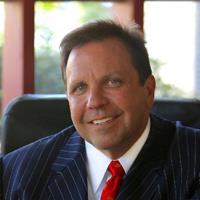Chicago Cubs' David Ross Teaches Us Three Ways to be a Better Teammate
September 19, 2018 | 2471 Views
David Ross had a problem. His hands. He didn’t know what to do with them. Hoisted on the shoulders of his jubilant teammates who were carrying him off the field like a Roman conqueror, the aging, perennial back-up catcher, fumbled and flailed, ear-to-ear grin not withstanding. The Cubs had just won the World Series in a spectacular Game Seven, and as he and his teammates swarmed each other in an impromptu post-World Series victory melee, the simple fact was he did not know what to do with his hands while riding those shoulders.
This celebratory moment might never have occurred but for a conversation in a cramped office at Fenway Park eight years earlier. As the 2008 season was winding down, the Boston Red Sox had added Ross to their roster as filler, a safety play, as that team headed to the playoffs. The Sox would lose in the American League Championship Series, and shortly thereafter Theo Epstein played the part of catalyst for a career-changing discussion. “Let me tell you what I heard about you when we considered adding you to our team,” the then Red Sox president intoned, as Ross snapped to attention. “Your reputation is that you are a me-first player. That’s not what we saw, while you’ve been here with us, but that’s your reputation, and reputations die hard." Rather than react or retract, Ross did something poised and honorable. He thanked Epstein, and swore to himself that no one would ever say those words to him again.
He went to work, not just on his game skills, but on how to become a great teammate, putting serious thought into how he could make others around him better. He came up with a list, which he set about executing with passionate diligence:
Be engaged: Pay attention to all that is going on around you. Focus on your interaction with your teammates. Scrutinize everyone’s body language. How do your teammates show up to work? Do they look tired, or mopey? Are they open or tense? Do they exhibit introverted behavior patterns, like shying away from conversations and huddling silently in a corner of the locker room? Or are they extroverted: noisy and boisterous to the point of distracting their teammates’ concentration during game preparation. By being engaged, anything you witness, any data you gather, may open up the door to a question or conversation that will help you and them be better players and finer people.
Be encouraging: David Ross came to embody unbridled enthusiasm. Whether he was on the field on game day or had sat out a week’s worth of games—which was much more often the case over most of his 15-year career—Ross was always on the top step of the dugout, there to high five teammates exiting the field. He’d connect with them and comment on something he’d noticed that they’d done well. While others who weren’t playing may have sulked or steamed at having to ride the pine, Ross became the big brother, a motivational cheerleader and one-man general support system to all the starters and subs with whom he shared a clubhouse.
Hold other people accountable: Because Ross was engaged and encouraging, he was able to hold his teammates accountable. They listened to him and entertained his suggestions because he’d invested energy in them, focused attention on them, and, in that way, forged a brotherly bond with each and every one of them. When you care for someone, their appreciation quickly morphs into a sense of gratitude and a push towards responsibility.
These three approaches to honing his mindset helped Ross change his reputation, ultimately becoming known as an amazing teammate, earning him the opportunity to double the length of his career after that 2008 conversation with Epstein. And by doing so, he proved to all of us that becoming a great teammate is something you and I can learn. And, ultimately, those lessons have been instrumental in moving him in a direction that positioned him and his teams to win two World Series Championships, one back in Boston in 2013 and again in 2016 with the Cubs.
When that final game ended, David Ross—a back-up catcher – was hoisted atop his giddy cohorts, and carried off the diamond, as if he had broken the all-time consecutive-game hit streak or smashed a walk-off homerun to win a trophy. And in that moment, he just didn’t know what to do with his hands. “Do I wave? Do I blow kisses? What do I do?”
Because for all he had done to prepare himself as a teammate, David Ross, had never imagined himself on the shoulders of others. Awkward as that show-stopping sequence was, at least Ross could find comfort in the fact that he now had a World Series ring for each one of those hesitant hands.
Don Yaeger is a keynote speaker, NY Times best-selling author, longtime associate editor of Sports Illustrated and author of Great Teams: 16 Things High Performing Organizations Do Differently. He was a keynote speaker at the CHART conference in Boca Raton, July 2018. To inquire about bringing Don to your event, please contact Anjie Cheatham at anjie@team180.com


